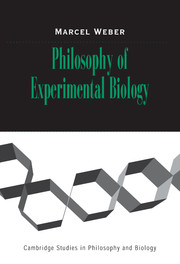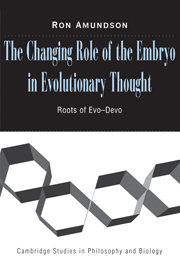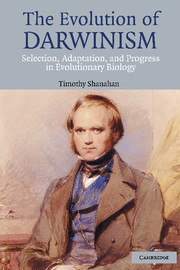Philosophy of Experimental Biology
Philosophy of Experimental Biology explores some central philosophical issues concerning scientific research in experimental biology, including genetics, biochemistry, molecular biology, developmental biology, neurobiology, and microbiology. It seeks to make sense of the explanatory strategies, concepts, ways of reasoning, approaches to discovery and problem solving, tools, models and experimental systems deployed by scientific life science researchers and also integrates developments in historical scholarship, in particular the New Experimentalism. It concludes that historical explanations of scientific change that are based on local laboratory practice need to be supplemented with an account of the epistemic norms and standards that are operative in science. This book should be of interest to philosophers and historians of science as well as to scientists.
- Focuses on experimental disciplines in the philosophy of science
- Focuses on the central issues in philosophy of science by using case studies from experimental biology
Reviews & endorsements
Review of the hardback: 'I feel that Weber's treatment will move the philosophical discussion well beyond Schaffner's original study … strength of Weber lies in combining two ideals. First, his philosophical discussion is based on detailed case studies from biochemistry, molecular biology, developmental genetics, and neurophysiology. Second, despite close attention to actual science, Weber always keeps questions from the general philosophy of science clearly in view … This is a very rich book, dealing with various issues - questions peculiar to experimental biology as well as basic topics from the general philosophy of science … many of Weber's ideas will serve as a point of reference for future philosophical discussions on molecular biology. Philosophy of Experimental Biology ought to be important for anyone interested in the philosophy of biology.' Biology and Philosophy
Review of the hardback: 'Marcel Weber's book is extremely interesting. It overviews a huge spectrum of viewpoints and case studies and surely represents a precious account of the state of art of the philosophy of experimental biology. An aspect that … enriches [the reading] … is Weber's attempt to always furnish his personal, often distinctive viewpoint.' History and Philosophy of the Life Sciences
Product details
November 2004Hardback
9780521829458
376 pages
229 × 152 × 25 mm
0.643kg
Available
Table of Contents
- Preface
- Acknowledgements
- 1. Introduction
- 2. Reductionism and the nature of explanations
- 3. Discovery: solving biological problems
- 4. Scientific inference: testing hypotheses
- 5. Experimental systems: a life of their own?
- 6. Model organisms: of flies and elephants
- 7. Reference and conceptual change: out of Mendel's garden?
- 8. Developmental biology and the genetic program: explaining ontogeny
- 9. Scientific realism: in search of the truth
- Notes
- Bibliography
- Index.






